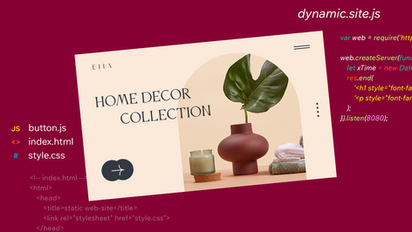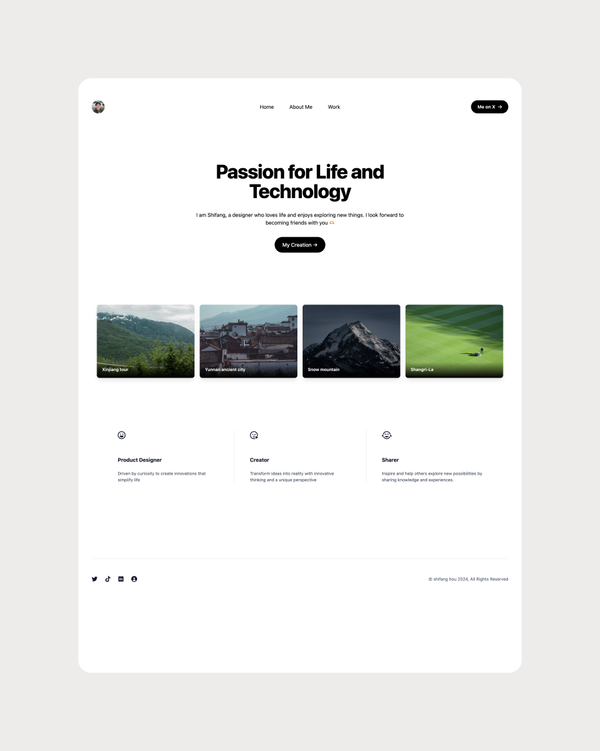Web Page Make Trends
Web Page Make Resources
Web Page Make
In the digital age, having a strong online presence is essential for artists looking to showcase their work and connect with new audiences. A well-designed website can serve as a virtual gallery, allowing artists to display their artwork and tell their story to the world. However, building a website from scratch can be a daunting task, especially for those without technical expertise or a large budget. Fortunately, there are a number of free site builders available that make creating a professional-looking website easier than ever.

Web Page Make Checklist
Web Page Make
AI web developers are at the forefront of the technological revolution, as they leverage AI technologies to create smarter and more intuitive websites. These professionals have a deep understanding of AI algorithms, machine learning, natural language processing, and other AI technologies that enable them to create websites that can think, learn, and adapt to user preferences.
One of the key skills of an AI web developer is the ability to understand and implement AI algorithms. These algorithms are the foundation of AI technologies and enable websites to perform tasks such as personalized recommendations, natural language processing, image recognition, and more. AI web developers must have a strong grasp of these algorithms and be able to apply them effectively to create intelligent websites.
In addition to AI algorithms, AI web developers must also have expertise in machine learning. Machine learning is a subset of AI that enables computers to learn from data and improve their performance over time. By leveraging machine learning techniques, AI web developers can create websites that can analyze user behavior, predict user preferences, and provide personalized recommendations.
Another key skill of an AI web developer is proficiency in natural language processing (NLP). NLP is a branch of AI that enables computers to understand and interpret human language. AI web developers use NLP techniques to create websites that can interact with users in a more natural and intuitive way, such as chatbots and virtual assistants.
AI web developers also need to have a strong foundation in web development technologies such as HTML, CSS, JavaScript, and backend programming languages like Python or Java. These technologies are essential for building the structure and functionality of websites, and AI web developers must be able to integrate AI technologies seamlessly into the website’s architecture.
AI web developers are changing the landscape of web development by creating websites that are more intelligent, personalized, and user-friendly. These professionals are at the forefront of innovation, pushing the boundaries of what is possible in web development. By leveraging AI technologies, AI web developers are creating websites that can adapt to user preferences, provide personalized recommendations, and even anticipate user needs before they are expressed.
1. Wix
Wix is a popular website builder that offers a wide range of templates designed for churches and religious organizations. With its drag-and-drop interface, users can easily customize their website to reflect their unique style and branding. Wix also offers a variety of features such as event calendar integration, online donation tools, and media galleries for sermons and other resources. Additionally, Wix provides reliable hosting services and SEO tools to help churches reach a wider audience online.
2. Squarespace
Squarespace is another user-friendly website builder that is well-suited for churches looking to create a modern and visually appealing website. With its stylish templates and customizable design options, Squarespace allows users to create a professional-looking site without any coding knowledge. Squarespace also offers features like event scheduling, donation forms, and social media integration, making it easy for churches to engage with their community online. Additionally, Squarespace provides responsive design capabilities, ensuring that your website looks great on any device.
3. Sharefaith
Sharefaith is a website builder specifically designed for churches, offering a comprehensive suite of tools and templates to help churches create a strong online presence. Sharefaith’s templates are tailored for churches and religious organizations, featuring customizable layouts and designs to suit any style. In addition to website building tools, Sharefaith also provides features such as sermon hosting, online giving options, and church management tools. Sharefaith also offers a library of resources including graphics, videos, and worship media to help churches enhance their online presence.
4. WordPress
WordPress is a versatile platform that can be used to create a wide range of websites, including church websites. With its extensive library of themes and plugins, users can easily customize their website to meet their specific needs and preferences. WordPress offers features such as event calendars, donation forms, and sermon hosting capabilities, making it a great choice for churches looking to engage with their congregation online. Additionally, WordPress is known for its robust SEO capabilities, helping churches improve their visibility in search engine results.
5. Weebly
Weebly is a user-friendly website builder that offers a range of features suitable for churches and religious organizations. With its drag-and-drop interface and customizable templates, users can easily create a professional-looking website without any coding knowledge. Weebly also provides features like event calendars, donation forms, and video hosting capabilities, making it easy for churches to share resources and connect with their community online. Weebly also offers reliable hosting services and responsive design options, ensuring that your website looks great on any device.

A Beginner’s Guide to Web Page Make
Web Page Make
Conclusion
Web design is a critical component of creating a successful online presence and can significantly impact the performance of your website. By following best practices in web design and focusing on user experience, you can create a visually appealing, user-friendly, and functional website that attracts and retains visitors, drives conversions, and enhances brand reputation. Remember to define your goals, know your audience, keep it simple, optimize for mobile, use high-quality visuals, ensure clear navigation, prioritize loading speed, and test and iterate for continuous improvement. With these tips in mind, you can create an effective website that stands out in the digital landscape and drives success for your business.


